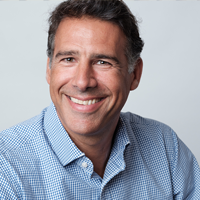Small Changes can produce great results.
“In the current situation, with a pandemic and the global climate developments, Friedman’s theory that “The business of business is business” no longer holds water,” write Arild Spandow, CEO of the Amesto Group and Ariane Spandow, Head of CSV.
A long-recognised economic theory introduced by Milton Friedman in the 1970s claimed that “The business of business is business”. The principal purpose and number one priority for any company was profit for its owners and everything else had to fall into place as a natural consequence of this.
The acute pandemic situation we are now experiencing and the global climate developments both indicate that this theory no longer applies. The purpose of doing business has changed significantly in recent years and we now also have to include societal and climate objectives as key pillars in any company. There are many examples of how this can be expressed. In his annual letter to the market in January, Laurence D. Fink, founder and head of the world’s largest investment company, BlackRock, wrote that sustainability and the environment will be key decision-making factors in the company’s investments going forward and that they would withdraw investments in businesses that do not contribute to this, such as coal and oil.
REWARDING SUSTAINABLE BUSINESSES
Closer to home, we can look towards DNB, which, from 2020, will reward sustainable businesses through “green borrowing”. Green borrowing will be more affordable than loans available to businesses that do not make a positive contribution towards the climate and environment. Several of the loans are also linked to sustainability goals and the credit is measured based on specific goals that have been met.
With the current situation as a backdrop, we can see that economic theory needs to be rewritten. To a much greater extent, businesses must, and will, view corporate social responsibility as an important prerequisite for existing. Handing over responsibility to classical economic theory and politicians has proven not to be enough to achieve the results we need to achieve. Both businesses and us as individuals have to understand that we all have to work together if we are to succeed in bringing about the necessary changes.
WE BELIEVE IN THE BUTTERFLY EFFECT
We do not think this has to be difficult. We believe in the butterfly effect. This states that small changes can produce great results. Several months before the coronavirus pandemic struck, we had already decided to change the bonus structure in the Group. Naturally, the focus is now on completely different areas to bonuses, but the principle of letting the three Ps (People, Planet, Profit) be one of our mainstays has, if possible, been strengthened even further.
At Amesto, we previously measured our Group management team on economic results. Full stop. At the same time, we have, as a family business, spoken a lot about social value creation and worked actively to find our place in the world of sustainability. Our managers and employees may have perceived it as somewhat paradoxical for us to speak passionately about these values while measuring by profit only. Friedman versus Fink.
REWARD SYSTEM
We wanted to create a reward system that matched our objectives. We wanted to get away from this unilateral focus on financial results and ended up measuring according to three main dimensions – People, Planet, Profit, (triple bottom line), with all dimensions weighted equally over time.
“People” is measured based on internal monthly employee surveys (&Frankly) and customer satisfaction surveys (Net Promoter Score, NPS), “Planet” is measured based on strategy and goal attainment in specific societal and green value-creating projects, “Profit” is measured based on financial results.
A minimum measurement must be attained for each P in order to receive a bonus. If our Group management team delivers on financial results but falls below the “minimum” threshold for People or Planet, they will not qualify for any bonus at all.
With everything that is going on in the world right now, it is clear that the business world will look completely different in just a few months. For our part, the experience has further reinforced our belief that our operating models must reflect our values – People, Planet, Profit – in all parts of the business.

